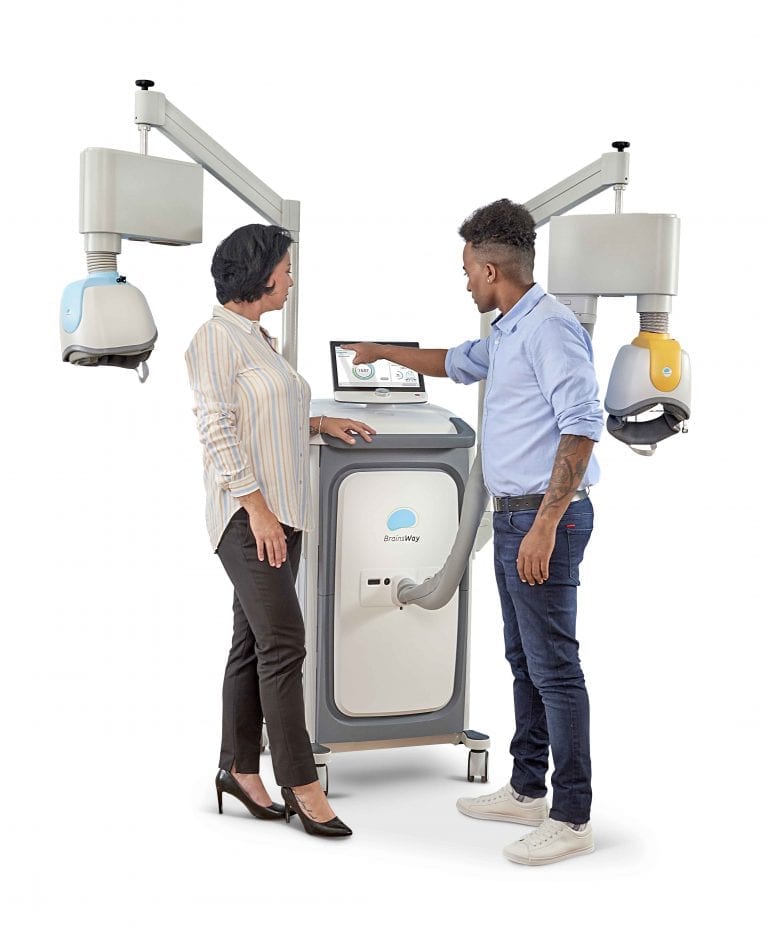
Living with bipolar disorder can present unique challenges, impacting various aspects of life. While traditional treatment approaches are vital, there is growing interest in innovative therapies that can enhance overall well-being. Transcranial Magnetic Stimulation (TMS) has emerged as a promising non-invasive technique for individuals with bipolar disorder. In this article, we will explore the world of TMS, its potential benefits, and its application in the treatment of bipolar disorder. By understanding the power of TMS as an adjunct therapy, we can gain insights into how it can contribute to a more comprehensive approach to managing bipolar disorder and improving the quality of life for those affected.
Understanding Bipolar Disorder
Bipolar disorder is a complex mental health condition characterized by alternating episodes of mania and depression. It affects individuals on both emotional and cognitive levels, posing significant challenges to daily functioning and overall well-being. Traditional treatment for bipolar disorder typically involves a combination of medication, psychotherapy, and lifestyle changes. However, these treatments don’t always work for everyone, and some individuals continue to struggle with debilitating symptoms. That’s where TMS comes in.
Transcranial Magnetic Stimulation (TMS): A New Hope
TMS therapy for bipolar disorder is a non-invasive procedure that uses magnetic fields to stimulate nerve cells in the brain. It’s typically used when other treatment methods have not been effective.
TMS works by placing an electromagnetic coil against the scalp near the forehead. The electromagnet painlessly delivers a magnetic pulse that stimulates nerve cells in the region of the brain involved in mood control and depression. This can help alleviate depressive symptoms and improve mood.
Several studies have shown promising results of TMS for bipolar disorder, particularly for treating depressive episodes. Research suggests that TMS can be effective in reducing the severity of depressive symptoms and improving response and remission rates in bipolar depression. It’s important to note that most patients who benefit from TMS are those who haven’t found relief through standard treatments.
The Benefits and Side Effects of TMS
TMS for bipolar disorder is generally well-tolerated. The most frequently reported side effect is a headache, which may occur during or after treatment. However, it is important to note that these headaches are typically mild in nature and can often be alleviated with over-the-counter pain relievers. Alongside headaches, some individuals may experience mild scalp discomfort, which is transient and resolves quickly. It is important to highlight that serious side effects are rare, but in extremely rare cases, seizures may occur. Nevertheless, healthcare professionals closely monitor TMS sessions to ensure safety and minimize the risk of adverse effects.
On the benefits side, TMS therapy can be a viable option for patients who haven’t responded well to conventional treatments for bipolar disorder. Here are some potential benefits:
Non-Invasive Treatment
Transcranial Magnetic Stimulation (TMS) is a non-invasive procedure that does not require surgery or implantation of electrodes. This means the treatment does not involve any physical penetration into the body, reducing the risks associated with surgical procedures.
Outpatient Procedure
TMS is an outpatient procedure, which means patients can come in for treatment and go home the same day. This eliminates the need for a hospital stay and allows for a more comfortable treatment process.
Targeted Treatment
TMS targets specific areas of the brain that are known to be involved in mood regulation. This allows for a more focused treatment, directly addressing the areas responsible for the symptoms of conditions like depression or bipolar disorder.
Low Side Effect Profile
Compared to other treatments like medication or electroconvulsive therapy (ECT), TMS has fewer side effects. The most common side effects include scalp discomfort and headache during or after the treatment, but these are generally mild and temporary.
Effective for Treatment-Resistant Depression
TMS can be an effective treatment option for those who have not responded to traditional treatment methods like medication or psychotherapy. This offers new hope for individuals struggling with treatment-resistant depression or bipolar disorder.
The Future of TMS for Bipolar Disorder
The future of TMS for bipolar disorder holds promise, though further research is needed. TMS offers non-invasive treatment potential, optimizing parameters and personalizing approaches. Advancements in technology and collaboration contribute to its development. TMS provides hope for alternative management options, enhancing symptom control. As research expands, TMS may become integral in comprehensive treatment plans, improving overall well-being.
TMS as a Path to Enhanced Well-being
TMS for bipolar disorder represents a promising step forward in the treatment of mental health disorders. It offers a new avenue of hope for those who haven’t found relief from traditional treatments.
However, as with any medical procedure, it’s essential to discuss with your healthcare provider whether TMS is the right option for you. Consideration should be given to your overall health, the severity of your bipolar disorder, your response to previous treatments, and your comfort with the procedure.
In conclusion, while bipolar disorder can be a challenging condition to manage, advancements in treatments like TMS offer new hope. By harnessing the power of magnetic stimulation, we are inching closer to a future where enhanced well-being is a reality for more and more people living with bipolar disorder.
Final Note
Remember, everyone’s journey with bipolar disorder is unique. What works for one person may not work for another. It’s important to remain patient, to keep open communication with your healthcare provider, and to explore different treatment options, like TMS, to find the best approach for you. Mental health care is a journey, and every step forward, no matter how small, is a victory.
Through continued research and advancements in treatments like TMS, we can look forward to a future where bipolar disorder and other mental health conditions are understood better and managed more effectively.











